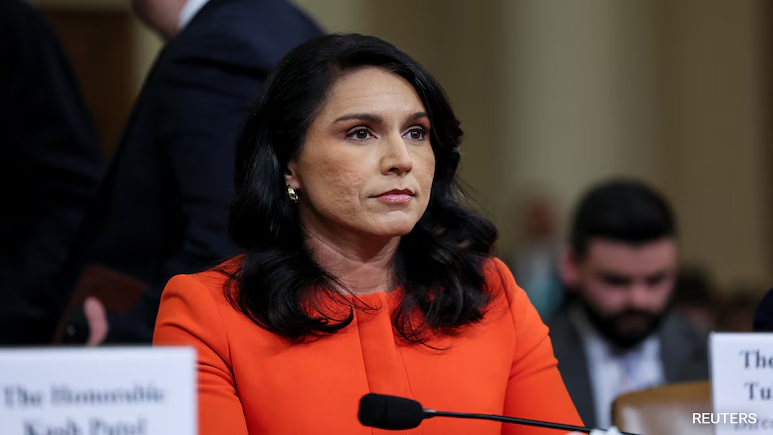U.S. Director of National Intelligence Tulsi Gabbard has publicly accused a senior Washington Post reporter of harassing intelligence officials and using deceptive tactics in pursuit of sensitive information. In a strongly worded post on X, Gabbard alleged that Ellen Nakashima bypassed her press office and instead contacted high-level intelligence officers using a burner phone, while refusing to identify herself or disclose her affiliation with the Post.
Gabbard claimed Nakashima demanded classified details under false pretenses and suggested the outreach amounted to politically motivated harassment. She further accused Nakashima and the Washington Post of orchestrating a smear campaign, referencing what she described as past incidents of harassment involving her family in Hawaii. “This kind of deranged behaviour reflects a media establishment so desperate to sabotage @POTUS’s successful agenda that they’ve abandoned even a facade of journalistic integrity and ethics,” Gabbard wrote. “The Washington Post should be ashamed.”
The Washington Post quickly defended Nakashima, a veteran national security correspondent and member of multiple Pulitzer Prize-winning teams. Executive editor Matt Murray rejected Gabbard’s claims as baseless and personal, describing Nakashima as “one of the most careful, fair-minded, and highly regarded reporters covering national security.” Murray emphasized that contacting sources directly is a standard and necessary part of journalism. “Reaching out to potential sources rather than relying solely on official government press statements… is neither nefarious nor harassment. It is basic journalism,” he said.
The clash highlights ongoing tensions between government officials and members of the press, particularly around national security coverage. In June, U.S. Defence Secretary Pete Hegseth accused reporters of undermining military efforts against Iran. Around the same time, former President Donald Trump called for CNN to fire national security reporter Natasha Bertrand over her coverage of intelligence assessments, prompting a firm defense from CNN.
The latest confrontation between Gabbard and Nakashima is part of a growing pattern of political figures directly attacking journalists, a trend some media watchdogs say is undermining public trust and press freedom.

